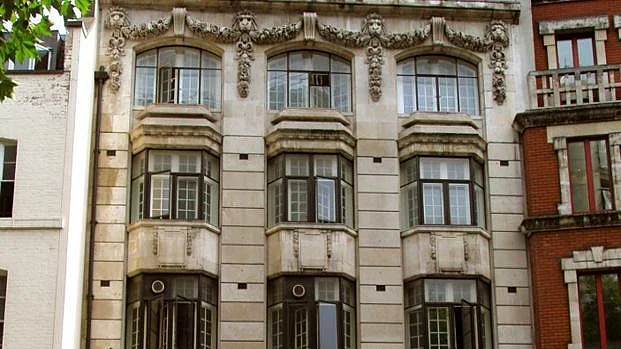London diary: Oh, the India Club is so retro!
Save the India Club campaign was supported by some of Britain’s leading intellectuals, journalists and writers. Were it not for their support, the club might have lost the battle

Bland food, indifferent service, dull ambience. What then is there to like about the India Club?
“Precisely this!” said one diner, who had come with his whole family. “We come here for its old-world atmosphere.”
A visitor from India said: “I used to come here in the sixties. Nothing has changed.”
The club, whose founding members included Jawaharlal Nehru and Mountbatten, recently won a hard-fought battle against real estate sharks who wanted to pull it down and build luxury apartments in its place. The “Save the India Club” campaign was supported by some of Britain’s leading intellectuals, journalists and writers.
Were it not for their support and the play the campaign got in the media, the club might have lost the battle. Indeed, I suspect, the reason this old relic is still around at all is thanks to a small but loyal lingering base of Indophile Brits —mostly from another generation—who have not given up on the old “curry house”.
Invariably, there are more white faces around. On a recent visit, at one point I and a friend were the only two Indians in the dining hall. All around us were white diners out for their weekend curry. And while we moaned about the quality of food, they loved it.
“The curry here is always great!,” said one woman making a thumbs-up sign.
Meanwhile, here’s a friendly advice: avoid their samosas even if the white memsahib on the next table is gorging on them; but do try their cocktail of whiskey and white of egg! We loved it.
Brown and funny? Really?
When a white comic laughs, the world laughs with him. But when a brown comic laughs, he risks laughing alone as Nick Ahad, a half-Asian stand-up comic (son of a Bangladeshi father and an English mother), discovered to his embarrassment at the recent Edinburgh festival.
He has recalled how “lonely” he felt when his joke at a fringe show was met with deafening silence. He looked around expecting at least a polite applause but “this audience didn’t laugh”. Instead, there was an “intake of breath, some booing and a pretty unpleasant atmosphere”.
“It’s a joke, I said, which had zero impact on the frost that had descended. I sat down. I couldn’t shake a sense of otherness. I looked around and didn’t see any other brown faces – not a single ally who would understand what had happened and why I felt so uncomfortable. For a fun show, that wasn’t a lot of fun,” he wrote later.
Funny, isn’t it?
Bribing students, UK style
It’s university admissions time in Britain, and this year something strange is happening. Instead of students chasing universities, universities are chasing them. And how!
London Metropolitan University is reportedly offering its existing students and staff £200 for referring a friend to the university. And an obscure out-of-London university is doing even better: it’s doling out £500 for the favour.
Some are luring candidates directly by offering them a range of freebies such as ipads, laptops and gym memberships. The competition has turned ugly, with rival universities trading insults on social media causing both amusement
and outrage. This is a far cry from the era of free higher education, when university places were so limited that those who got a place considered themselves lucky. But now that universities can charge up to £9,000 a year, irrespective of their reputation and standards, there’s a race to attract more students: they’ve become “walking pound signs”, wrote the London Evening Standard columnist Lucy Tobin describing it as “an inevitable consequence of the marketisation of higher education”.
Advocates of privatisation of higher education in India, beware.
No to journalists?
British journalists are wrestling with an old moral dilemma: to what extent should they go to keep their distance from the government of the day? Does accepting a government honour amount to going too far? Do working journalists whose job it is to hold the government to account risk compromising their independence and impartiality by accepting state honours?
Generally, governments are believed to be only too keen to use their power of patronage to co-opt influential journalists. But, ironically, the British government is facing criticism for the opposite reason. A proposal to exclude journalists from state honours system on the grounds that it may affect their impartiality has caused long faces at the BBC which is reported to be pushing for a knighthood for the veteran star broadcaster David Dimbleby when he retires this year.
And, lastly
A little mystery about a “missing” Hussein painting. Apparently, there used to be a signed painting of his at the India Club once, but an old loyalist on a visit after a long gap couldn’t find it anywhere. He asked around, but nobody seemed to know where it had gone
Follow us on: Facebook, Twitter, Google News, Instagram
Join our official telegram channel (@nationalherald) and stay updated with the latest headlines